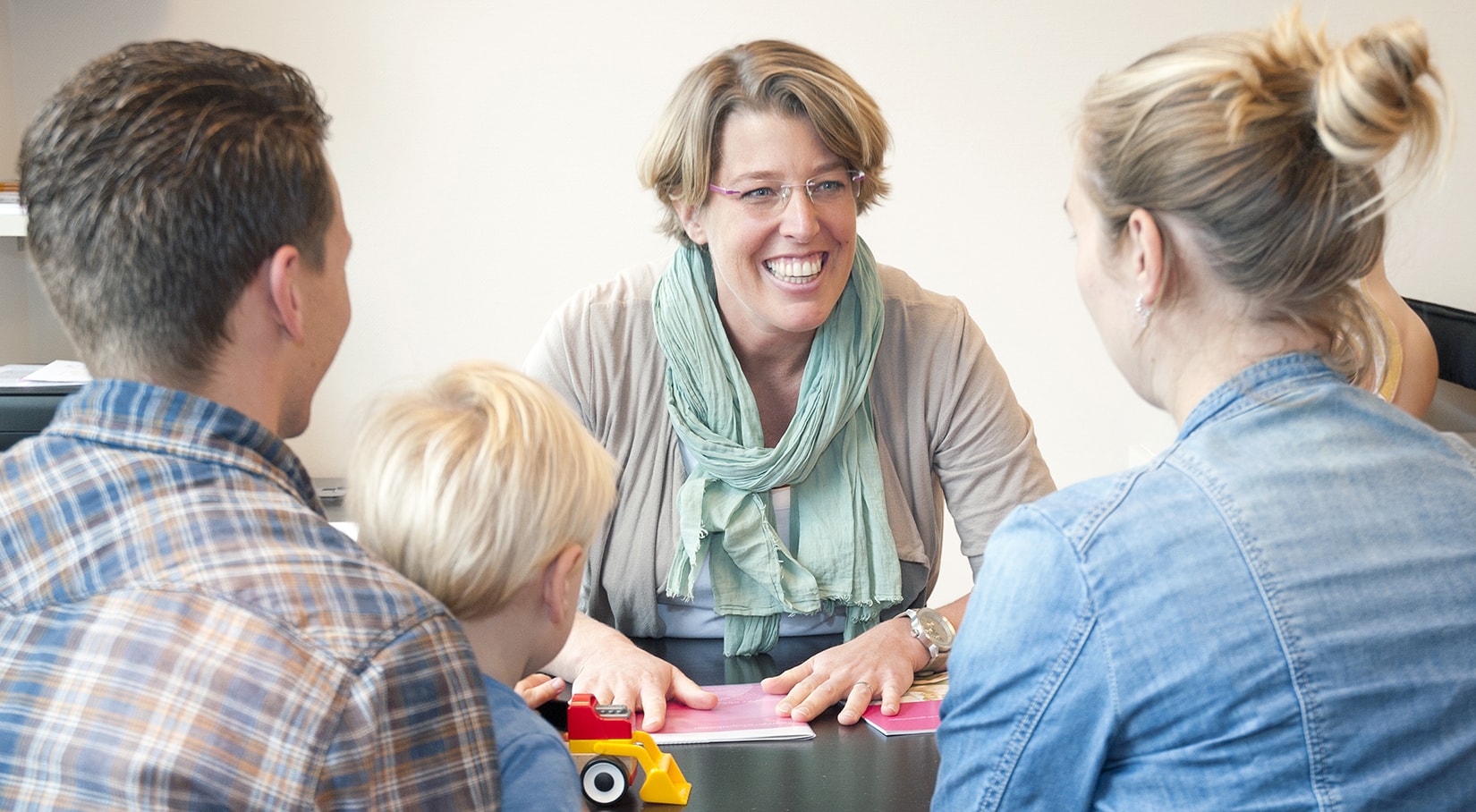Why choose for Vita Nova?

Our team is professional, highly educated and passionate

We give customized care

Partners are very important in our care

Free parking
Your pregnancy week by week at Vita Nova
- wk 8
- wk 9-10
- wk 11-12
- wk 15
- wk 19
- wk 23
- wk 27
- wk 30
- wk 32
- wk 34
- wk 36
- wk 37-39
- wk 40
- *
-
Week 8
First ultrasound
This week is the first meeting with your baby! The ultrasound will be performed by the obstetric sonographer of Keik, Vita Nova’s ultrasound Centre. The beginning of a special time in your life. During this ultrasound we will mostly check if the baby’s heart is beating and if you’re pregnant with one or multiple babies.
Around 9-10 weeks we will plan your intake. For this appointment you can choose for an appointment at our practice or if you prefer an online appointment or an appointment by phone. Our preference is to see you in our practice or by camera.
Meanwhile you can already use the many information resources that Vita Nova has to offer at our website.
-
Week 9-10
Making choices …
During the intake appointment we take time to ask and answer questions. This way we try to get insight in the guidance that fits your pregnancy best during the months to come. We will also inform you on having a healthy pregnancy and we will refer you to useful information resources. Also, we will discuss your medical history and the possibilities of prenatal screening. As an expecting parent you can choose the combination test, the NIPT and the thirteen week ultrasound in the first trimester and in the second trimester the twenty week ultrasound.
-
Week 11-12
Dating ultrasound
From the moment you’re 11 weeks pregnant, and the baby in your belly is 9 weeks old, it’s no longer called an embryo. The baby already looks like a real mini-human. Most organs are developed and from that moment the baby will be called a fetus. The fetal period lasts till his/her birth.
During this week you will have your dating ultrasound at Keik, Vita Nova’s ultrasound Centre. The baby will have grown a lot, and by measuring the baby’s length from head to tailbone we will determine your due date of the pregnancy.
During this week you will also have an appointment the discus your definite choice for prenatal screening. During this appointment we’ll also explain the carepath we have set for you, in consultation with the gynaecologist if needed.
-
Week 15
At about 15 weeks the baby in your belly is about 10cm long and weights about 70 grams. It now has a thin layer of hair all over the body. Is your belly already showing? During this check-up we will listen to the baby’s heartbeat for the first time!
To check you and your baby, we will perform a standard check-up during every visit. You can read about what this means, when you read the button ‘follow up exams’.
Are you fantasizing about whether you’re expecting a boy or a girl and do you want to know the gender? Good news: from next week, at about 16 weeks of pregnancy, it is possible to see the gender of the baby with an ultrasound. If you like, you can plan an appointment for an ultrasound to check the gender of your baby. Of course you can also wait till the 20 weeks ultrasound of wait for the surprise at the birth of your baby!
We advise to arrange maternity care (kraamzorg) before 15 weeks pregnancy.
-
Week 19
20 Week ultrasound
Since a few weeks your second trimester of your pregnancy has started and most pregnant women feel a bit more energy at this term. Do you manage to do enough exercising or sports? Do feel the need for a pregnancy course? If you want to know more about this, we’re happy to inform you about this.
The 20-week ultrasound is coming up. One of our sonographers will perform this ultrasound at our practice. Sometimes there is a reason to have the gynecologist perform this ultrasound, then the appointment will be in the hospital. Most babies are born healthy in the Netherlands, but a small percentage has a congenital abnormality. Often this can be detected with the 20-week ultrasound. Are you curious to know what the sonographer will look at and what to expect from this ultrasound? Then you can read more.
-
Week 23
Breastfeeding or formula?
Your belly will really start to grow and probably you have replaced your normal clothes for maternity wear. Does it feel like your shoes are more tight? This could be right! Your feet can be bigger after pregnancy, up to 10 mm. With the progression of your pregnancy, it will be getting heavier for your body. Stay alert at what you feel. There are a few situations in which you always need to call us. These situations could be harmful for you or your unborn baby. Read more about this at the “guidelines when to call”.
Around this term you’re possibly thinking about all the practical things about having a baby. Have you thought about whether you want to breastfeed of bottle feed your baby? Ask our midwife about this and/or read further.
-
Week 27
The beginning of your third trimester …
After 27 weeks your baby grows a lot in weight, about 200 grams a week. Quite exhausting for you both! And as if that isn’t enough, you maybe are not able to sleep. Heavy dreams and peeing a lot can keep you up at night. This is all normal. Maybe you are considering where you want to deliver, at home or at the hospital?
If you have a rhesus c or rhesus D negative blood type, we will check your blood this week. If you have questions about this, feel free to ask our midwife and/or read about this below.
-
Week 30
Growth ultrasound
Did you know your body has gain a liter more blood during the past weeks? This causes your iron level in your blood to drop a bit. Around this term of pregnancy we will check if your iron level is not too low. We’ll also check your glucose level and platelet count, all important for the last trimester of your pregnancy.
Around 30-32 weeks of pregnancy every pregnant women in ‘s Hertogenbosch and surroundings gets a 30-week ultrasound. This is a medical ultrasound. The growth and position of the baby will be checked. Mostly you are able to see the baby’s face, hand and feet very well at this stage, and even if your baby has hear.
-
Week 32
Preparing for the delivery
Do you wish to deliver at home or at the hospital? Do you prefer to deliver in bed, a bath or a birthing stool? And what do you expect from us during the delivery? Do you have specific wishes or requests? We are happy to discuss your wishes and questions, possibly based on your birthplan. We will also inform you on how to reach us at time of the delivery.
This conversation can be done digitally or by phone if that is easier for you. Please indicate this to our assistant when planning the appointment.
-
Week 34
Preparing the post partum period
Between 6 to 4 weeks before your due date your maternity leave starts. When you choose 6 weeks, your maternity leave starts this week! Your baby is lowering in your pelvis and the uterus can react on this with irregular contractions. You can feel this as a hard belly or Braxton hicks contractions. This is normal, so no worries, and this doesn’t mean labor has started. Grant yourself enough relaxation and get your rest…
When you are stroking your bulging belly with a smile, try to imagine the postpartum period that is coming up. What are you expecting for the first week with your baby? What will a day with the baby look like? When do you need to call the midwife in the postpartum? We are happy to help you to form an image about this and to answer your questions about the postpartum period.
-
Week 36
Maternity leave!
Most babies are positioned head down at this time. The head can already be lowering in you pelvis. If your baby decided to be comfortable with his head up it is still able to turn around by itself, but this isn’t likely. In that case the midwife can suggest to have your baby turned at the hospital by an external version. This will be performed around 36 weeks of pregnancy. A breech position makes the birth more difficult and can cause more risks for you and your baby.
Do you have everything prepared for the delivery and postpartum period? Feel free to ask us for advice and/or read the information below.
From this week on you will come for a weekly check-up.
-
Week 37-39
The last weeks …
The last weeks…
A full term pregnancy! Congratulations! Your baby is now ready to be born, but the question is when? Your baby is usually still fine in your belly, even though the space is getting more cramped. It’s important to keep feeling your baby moving regularly.
Start preparing your hospital bags, within a few weeks you will be a family.
-
Week 40
Vol verwachting …
Your due date is (almost) reached and you haven’t given birth. That’s normal and no reason to be worried. More than 80% of all women gives birth before 41 weeks of pregnancy. A small 20% of all women deliver after. If your baby isn’t born within this upcoming week, sometimes we can help nature a bit. We will discus the possibilities with you this week.
-
Bevalling, kraamtijd en nacontrole
Nieuwe fase
Delivery
It can take short or long, but after about nine months of pregnancy it is there: the delivery.
Every delivery is different; every women lives it in her own way. Although most deliveries follow the same steps. You can do many things to look towards the delivery with confidence. A good preparation is half the work.
Post partum period
The delivery is behind you. You and your baby now start the postpartum period. What to expect from this period? What check-ups will be done with you and your baby and which caregivers are involved? And what can you do to recover as good as possible?
The first 6 weeks after delivery are called the postpartum period and the first 8-10 days is the first week postpartum.
During this first week the heel prick screening and hearing screening of the baby will be done. Below you can read more about this.Final check up
After about six weeks after your baby’s birth you can choose a final check-up by phone, digitally or at our practice with the midwife who guided your delivery. Together you will look back at your pregnancy, delivery and postpartum period. The midwife can also check how you are doing now, according to your needs.
During this final check-up it is also an option to discuss the possibilities of contraception.











